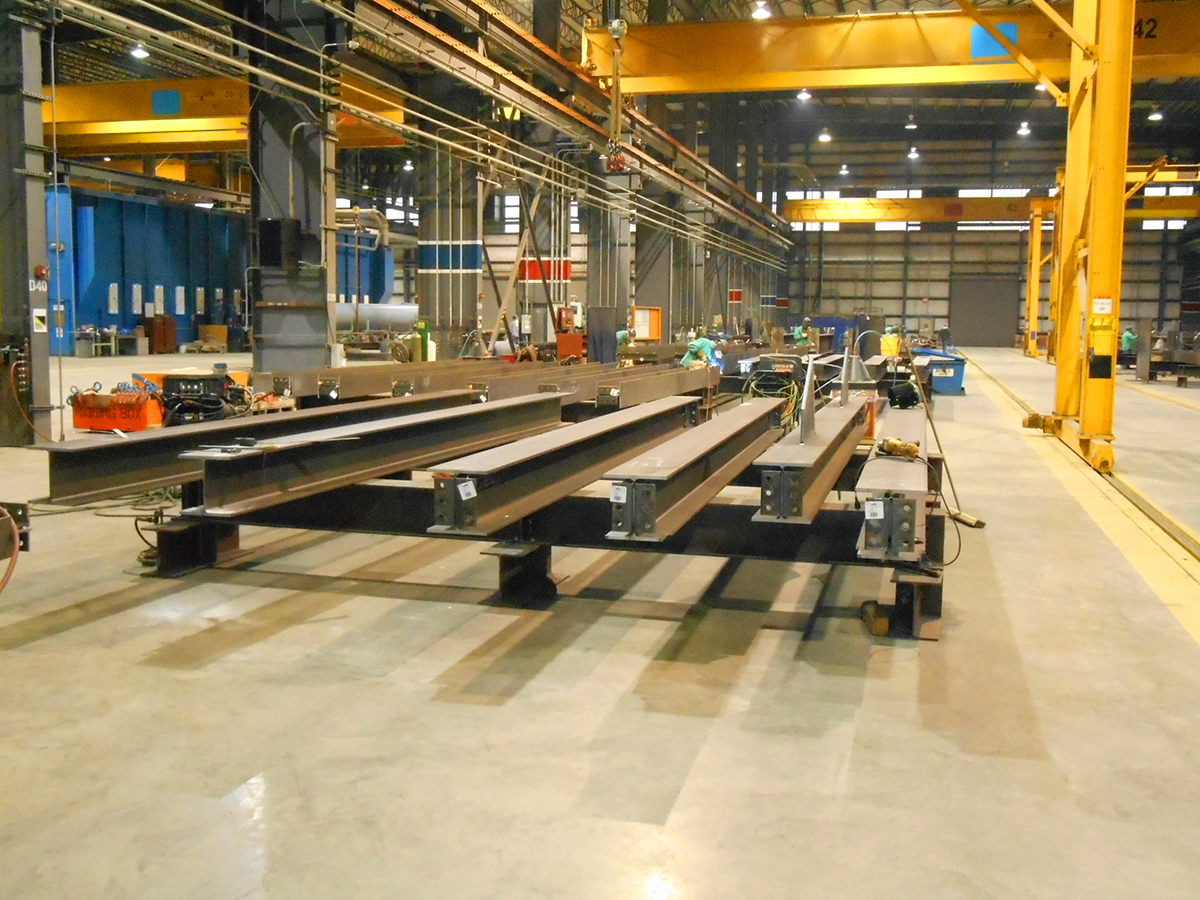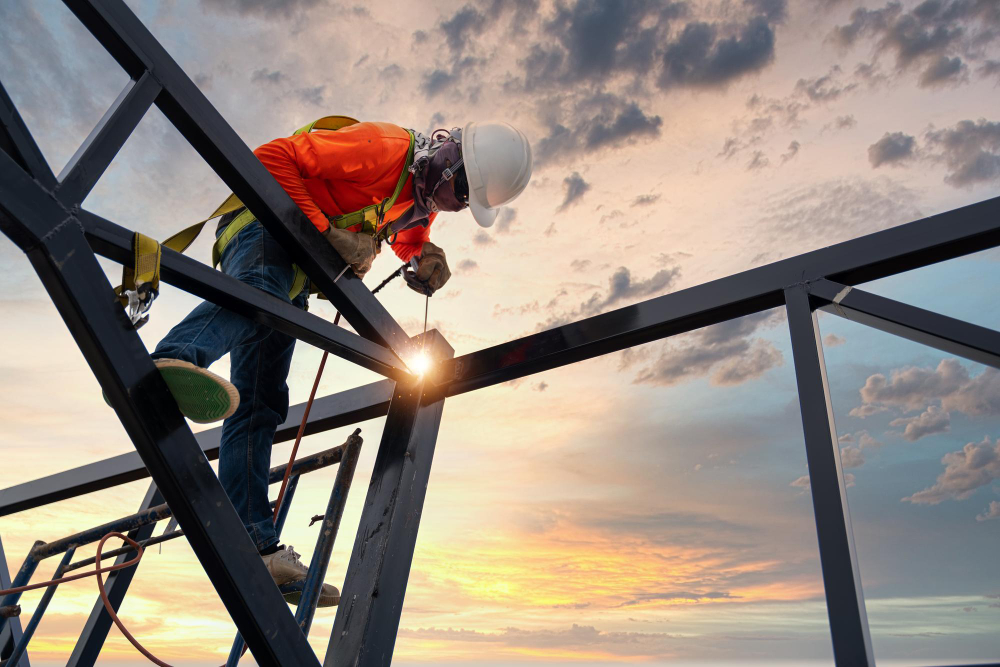Cutting-Edge Metal Fabrication Melbourne: Personalized Solutions for Every Job
Cutting-Edge Metal Fabrication Melbourne: Personalized Solutions for Every Job
Blog Article
The Ultimate Handbook on Custom Steel Construction Solutions for Structural Projects
In the realm of architectural projects, the relevance of custom steel construction solutions can not be overstated. From the foundational understanding of steel manufacture basics to the complex procedure of choosing one of the most suitable materials, every action in this journey plays an essential duty in the utmost success of a project. As we navigate with the intricacies of design factors to consider, manufacture processes, and high quality control actions, a comprehensive handbook acts as a directing light for experts looking for excellence in steel fabrication options. Keep tuned to reveal the insights that can transform the method architectural tasks are come close to and executed.
Understanding Custom Steel Construction Essentials
Exploring the principles of personalized steel manufacture gives understanding right into the complex process of transforming raw steel into tailored structural elements. Customized steel fabrication is a customized production method that includes cutting, shaping, and setting up steel materials to create unique structures according to certain job demands. Understanding the basics of custom steel manufacture is vital for making certain the effective execution of structural projects.
The process generally begins with the analysis of job specifications and layout demands. This initial stage includes comprehensive planning and cooperation in between developers, fabricators, and engineers to identify one of the most appropriate approach for making the steel components. Accuracy is key throughout the fabrication process, as even minor inconsistencies can impact the architectural integrity of the last product.
Different techniques, such as cutting, welding, and shaping, are used to transform raw steel right into the desired structural components. Proficient fabricators use innovative machinery and devices to ensure accuracy and uniformity throughout the fabrication process. Quality assurance measures are executed to validate the integrity of the produced parts prior to they are put together on-site, making sure conformity with industry requirements and task specifications.
Selecting the Right Steel Materials

Primarily, the sort of structural project and its specific needs play a critical duty in establishing one of the most appropriate steel materials. Variables such as the load-bearing ability, environmental conditions, and wanted life-span of the structure will determine the quality and type of steel that need to be made use of.
Additionally, the physical homes of the steel, including weldability, stamina, and ductility, should line up with the project's demands to ensure optimal efficiency and sturdiness (steel fabricators melbourne). Additionally, factors to consider such as corrosion resistance, cost-effectiveness, and schedule of the steel materials need to likewise be taken right into account during the option process
Layout Considerations for Architectural Projects
Architectural projects require meticulous interest to design factors to consider to ensure both performance and safety and security are prioritized throughout the building and construction process. When it pertains to designing structural tasks, several crucial factors should be thought about to guarantee the success of the venture. To start with, the structural integrity of the building need to be a leading priority. This involves examining lots, stresses, and environmental elements to figure out one of the most ideal layout that can withstand various conditions in time. Furthermore, factors to consider for the capability of the framework play a crucial role in the design process. Understanding the purpose of the building and how it will be made use of helps in creating a design that makes the most of effectiveness and use. Integrating components that improve the aesthetics of the structure can further raise the total style. Balancing functionality, aesthetics, and safety is essential in developing successful structural jobs that meet both sensible and aesthetic requirements. By meticulously thinking about these aspects throughout the design stage, engineers and engineers can guarantee the architectural job's success from perception to completion.
Simplifying Manufacture Processes for Efficiency

Moreover, carrying out lean manufacturing principles can dramatically enhance performance in steel fabrication. By lessening waste, maximizing workflow, and improving interaction between different groups associated with the fabrication procedure, tasks can be Bonuses completed much more quickly and with better requirements.
Moreover, developing a well-organized production routine and operations can aid in prioritizing tasks, designating sources properly, and conference project deadlines immediately. By having a clear strategy in area and routinely keeping an eye on progression, any kind of possible bottlenecks or delays can be identified and dealt with quickly, making sure smooth and reliable manufacture procedures for architectural tasks.
Quality Assurance and Task Monitoring in Steel Manufacture
To make certain the effective implementation of steel manufacture tasks, thorough quality assurance actions and reliable task monitoring methods are necessary elements in preserving precision and meeting customer assumptions. Quality assurance in steel construction includes rigorous inspections at numerous phases of the construction process to verify conformity with job specs and industry criteria. This consists of material testing, dimensional checks, and weld examinations to website link make sure structural honesty and safety.
Task monitoring plays a vital function in coordinating the numerous elements of steel fabrication tasks, such as scheduling, resource appropriation, and interaction amongst staff member. A well-defined project plan with clear objectives, turning points, and timelines aids to check progression and address any kind of prospective problems proactively. Effective interaction between all stakeholders, consisting of clients, Visit Website makers, engineers, and service providers, is vital for making sure that the project advances efficiently and meets the preferred top quality standards.
Final Thought
To conclude, customized steel manufacture plays an important duty in structural jobs by supplying customized solutions utilizing the ideal products and design considerations. Effectiveness in manufacture procedures, quality control, and efficient job monitoring are essential for successful results. By comprehending the essentials of personalized steel fabrication and implementing streamlined processes, job teams can provide high-grade and durable structures that satisfy the particular requirements of their clients.
Custom-made steel construction is a specific manufacturing method that includes cutting, shaping, and putting together steel materials to create distinct structures according to specific project requirements.To ensure the effective implementation of steel construction jobs, precise high quality control steps and effective task monitoring methods are necessary elements in maintaining precision and conference client expectations. Quality control in steel fabrication entails extensive evaluations at various phases of the manufacture process to verify conformity with job specifications and industry criteria (steel fixing).Task management plays a crucial function in coordinating the different aspects of steel manufacture projects, such as scheduling, source allocation, and communication among group members.In verdict, custom steel manufacture plays a vital role in architectural jobs by giving customized solutions utilizing the appropriate products and design considerations
Report this page